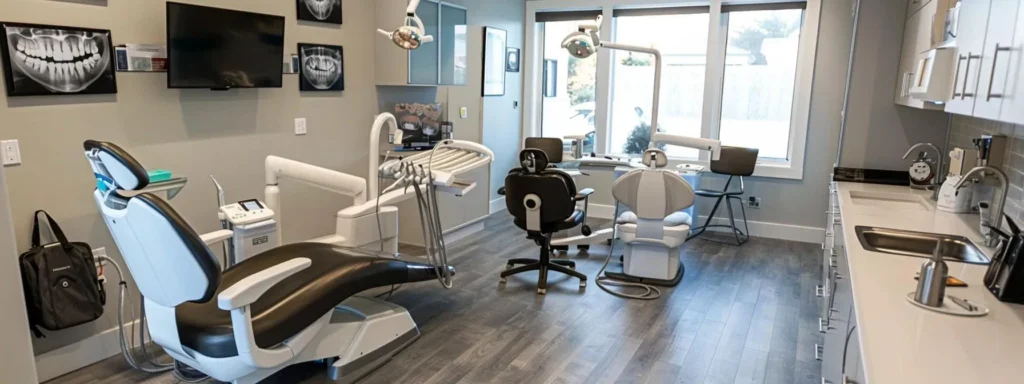The advent of dental implants has significantly improved the quality of life for individuals with missing teeth by providing a reliable and aesthetically pleasing tooth replacement option. Still, the potential for infections presents a challenge that must be carefully managed. The ongoing health of dental implants is based upon a combination of thorough patient education, consistent self-care, and careful supervision by dental professionals.
Education is the first critical step in safeguarding against implant infections. Informed patients are more likely to recognize early symptoms and understand the importance of seeking prompt professional care. For example, a patient who learns about the signs of periimplantitis is equipped to notice redness or discomfort around an implant, prompting early intervention.
Equally important is the consistent self care by patients, which forms the foundation of implant health. Daily routines such as careful brushing, interdental cleaning, and the use of recommended mouthwashes contribute substantially to the prevention of biofilm development, a known precursor to infections. Regular care substantially lowers the risk of infection and extends the longevity of the implant.
Professional oversight provides a safety net against potential complications. Regular check-ups with a dentist allow for professional cleanings and early identification of issues that might not be apparent to the patient. For instance, a dentist might detect a slight change in the stability of an implant before the patient becomes aware of it, allowing for corrective measures to be taken proactively.
Understanding How Dental Implant Infections Develop
Dental implant infections primarily occur as periimplantitis, a harmful inflammatory process that compromises the integration and health of the implant. To minimize the onset and impact of these infections, patients must engage in regular and careful cleaning, understand the multiple risk factors contributing to infections, and remain alert for early warning signs.
The most direct threat to dental implants is the accumulation of harmful bacteria. Without regular and careful cleaning of the implant site and the crown itself, these bacteria can form a biofilm, setting off a chain of inflammation and bone loss. For example, skipping routine oral care after meals can allow bacteria to gain a foothold, posing a threat to both natural teeth and artificial implants.
Managing risks linked to periimplantitis isn’t limited to combating bacteria. Medical conditions, such as poorly controlled diabetes, can compromise the body’s immune response, elevating the likelihood of implant infections:
- Bacterial Biofilm Formation: Poor oral hygiene allows harmful bacteria to accumulate and form protective films
- Medical Risk Factors: Conditions like diabetes can compromise immune response and healing ability
- Lifestyle Influences: Smoking affects blood flow and wound healing, increasing infection susceptibility
- Early Warning Signs: Discomfort, swelling, or gum color changes signal emerging infection problems
Additionally, certain lifestyle choices, like smoking, are proven to affect blood flow and wound healing, thereby increasing susceptibility to infections. Modifying these contributing factors is essential for each patient’s dental implant longevity.
Effective Treatment Approaches for Implant Infections
When dental implants become infected, it is critical to have a strategy that is both immediate and specific to the individual’s situation. The plan must include targeted antibiotic therapy to control bacterial infection and employ mechanical cleaning methods to remove bacterial biofilms, ensuring these approaches are suited to the severity and nature of the individual’s infection.
Antibiotics play a vital role in halting the progression of bacterial infections in dental implants. Depending on the case, a patient may be prescribed a course of oral antibiotics to combat the infection throughout the body, or antimicrobial gels may be applied locally to affect the area directly adjacent to the implant. Choosing the right antibiotic is important; it must be effective against the specific bacteria causing the infection.
Alongside antibiotics, mechanical cleaning is an essential part of treatment. Techniques like ultrasonic scaling use high-frequency vibrations to disrupt and remove the bacterial biofilm attached to the implant surface. In more severe cases, surgical intervention may be necessary to access and clean areas deep around the implant that are not reachable through non-surgical approaches.
Treating dental implant infections is not a one size fits all matter. Each case demands a careful approach that considers the infection’s stage, location, and the patient’s overall health. Whether through a carefully adjusted antibiotic treatment or the skilled application of cleaning techniques, a custom treatment protocol is critical for resolving infections effectively.
Recognizing When Advanced Care Is Needed
Effective management of dental implant infections requires being aware of specific indicators that signal the need for more aggressive treatment approaches. These signals include significant changes in probing depths, visible signs of bone loss, and the impact of infections on overall health. Prompt recognition and response to these signals are critical for successful intervention.
A critical diagnostic measurement for implant health is the probing depth, which is the space between the gum tissue and where the implant attaches to the jaw. Healthy implants exhibit shallow probing depths. In contrast, increased depths often indicate an infection has bypassed initial defensive measures, requiring a reevaluation of treatment strategies, possibly transitioning to surgical options.
X-rays and other imaging techniques reveal bone loss around an implant. When these images show significant bone deterioration, it is often a sign that the infection has progressed beyond the early stages. Such evidence of structural compromise accelerates the discussion of surgical intervention to fix the damage and stabilize the implant before further deterioration occurs.
The influence of an implant infection on overall health cannot be underestimated. If a patient exhibits signs that the infection is affecting their overall well-being, such as fever or general illness, it highlights the urgent need for advanced care. This systemic impact means that the infection has potentially escaped localized treatment and requires a more comprehensive medical approach.
Educational Support at Laguna Heights Dental
At the core of preventing dental implant infections lies the twin principles of education and support. Laguna Heights Dental prioritizes these principles by providing detailed maintenance education and necessary care resources to its patients. Through these efforts, patients are better equipped to maintain their dental implants and prevent potential complications.
In fostering patient empowerment, comprehensive education on implant upkeep is critical. Patients receive clear, step by step guidance on daily care practices, such as the proper techniques for brushing and flossing around implants. This level of education ensures that patients are well-informed about the details of implant hygiene, contributing significantly to the long term success of their dental work.
Visual aids are invaluable in demonstrating the correct cleaning methods:
- Step-by-Step Care Instructions: Clear guidance on proper brushing and flossing techniques for implants
- Visual Learning Tools: Diagrams and videos showing effective cleaning methods and proper technique
- Comparative Education: Understanding differences between implant care and natural tooth maintenance
- Ongoing Communication: Open access to dental team for questions and concerns about implant care
Visual aids include diagrams and videos that illustrate how to maneuver floss and brushes to effectively remove debris from the unique contours of implants and abutments, while ongoing support maintains an open line of communication for any follow-up questions.

Comprehensive Prevention Strategies
To secure the longevity and health of dental implants, a broad preventive strategy is essential. This strategy integrates thorough daily oral hygiene practices with regular professional dental assessments. Such an approach ensures that any potential issues with dental implants are addressed promptly and effectively.
Daily oral hygiene is the first line of defense against implant infections. This includes careful brushing of the teeth and implants at least twice a day to remove food particles and bacterial plaque. Flossing is just as critical, particularly for implants, as it helps to clean the areas that a toothbrush cannot reach, preventing the development of harmful biofilms.
Complementing brushing and flossing with antiseptic mouthwash adds an extra layer of protection. Such mouthwashes can reduce bacteria levels in the mouth, further safeguarding against the risk of infections around the implant site. Using a mouthwash as part of the daily routine helps to ensure a clean oral environment and aids in the prevention of peri implant diseases.
Routine visits to a dental professional for cleanings and evaluations complete the preventive measures. During these visits, dentists are able to conduct in depth cleanings that target plaque and tartar buildup, especially in areas difficult for patients to clean at home. They can also perform comprehensive evaluations to identify and address any early signs of infection or issues with the implant’s integration.
Long Term Care for Implant Success
Maintaining the health of your dental implants requires ongoing attention and professional support. At Laguna Heights Dental, we understand that successful implant care extends far beyond the initial placement procedure, requiring a partnership between patient and dental team for optimal long-term results.
Regular monitoring appointments allow our dental professionals to assess implant stability, check for early signs of complications, and provide specialized cleaning that targets areas difficult to reach with home care. These visits are essential for catching potential problems before they become serious issues requiring more extensive treatment.
Patient education remains a cornerstone of our approach, as informed patients are more successful in maintaining their implant health. We provide ongoing guidance on evolving care techniques, recommend appropriate oral hygiene products, and adjust care instructions based on individual needs and any changes in oral health status.
Lifestyle factors also play a crucial role in implant longevity. We work with patients to address risk factors such as smoking cessation support, diabetes management coordination with medical providers, and stress reduction techniques that can impact healing and immune function. This comprehensive approach ensures that all aspects of health that could affect implant success are addressed.
Protecting Your Investment in Oral Health
The durability and effectiveness of dental implants are largely dependent on how well the potential risks of infections are managed. Early detection of problems, professional intervention when needed, and comprehensive patient education are critical in maintaining the stability and longevity of dental implants.
Recognizing the early signs of implant trouble is essential. When patients are quick to notice changes such as discomfort or swelling around the implant site, they enable their dental professionals to act swiftly in addressing any developing issues. This fast response can be the difference between a simple adjustment and more extensive corrective procedures, while having access to professional dental care is indispensable for resolving complications when they arise.
At Laguna Heights Dental, we’re committed to ensuring the long term success of your dental implants through comprehensive prevention strategies, early detection protocols, and expert treatment when needed. Call Laguna Heights Dental today to schedule your implant maintenance appointment and discover how our specialized approach to implant care can help you avoid infections and maintain a healthy, confident smile for life.
Schedule your consultation Today!
Laguna Heights Dental
30231 Golden Lantern, Ste D
Laguna Niguel, CA 92677
(949) 363-1200
https://lagunaheightsdental.com/
See More Reviews From Laguna Height Dental. View information about local places in our community. Get Driving Directions to Our Practice
Frequently Asked Questions About Dental Implant Infections
What are the early signs of a dental implant infection?
Early signs include discomfort, redness, or swelling around your dental implant. If you notice these symptoms, contact your dentist promptly for an evaluation.
How can I prevent an infection in my dental implant?
Maintain good oral hygiene with regular brushing, flossing, and the use of antiseptic mouthwash. Additionally, keep up with dental checkups for professional cleanings and advice.
Can a dental implant infection be treated successfully?
Yes, most dental implant infections are treatable with the right combination of antibiotics and professional care. Early detection and treatment are key to a successful outcome.
Related Articles
Preparing for Dental Implant Surgery, After Care for Implants, Dental Implants Pricing Guide, Implants Vs Traditional dental, Traditional Dental Implants, Dental Implants, Same-Day Dental Implants, Affordable teeth implants, Dental implants surgery, Dentures with implants, Full Mouth Dental Implants, Mini Dental Implants, Zirconia Dental Implants, Dental Implant Success, Dental Implant Types, Dental Implant Candidates, Dental Implant Complications, Dental Implant Maintenance, Dental Implant Cost Factors, Dental Implant Failure





